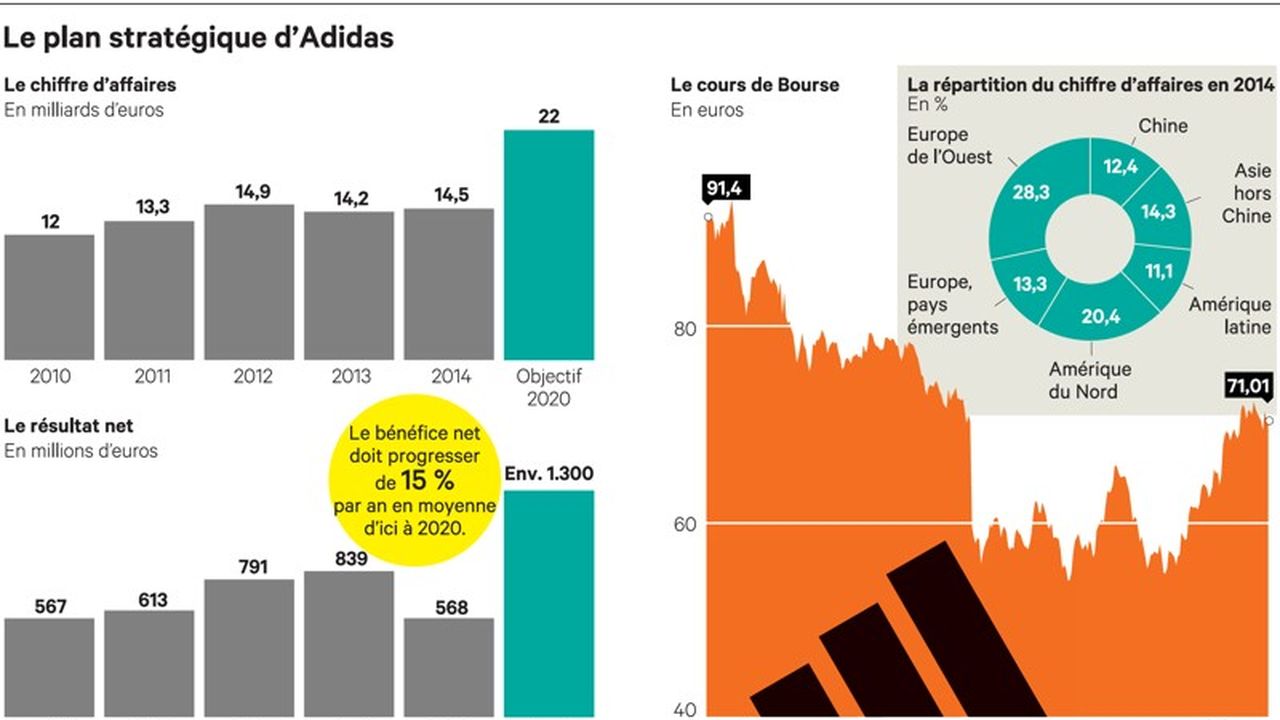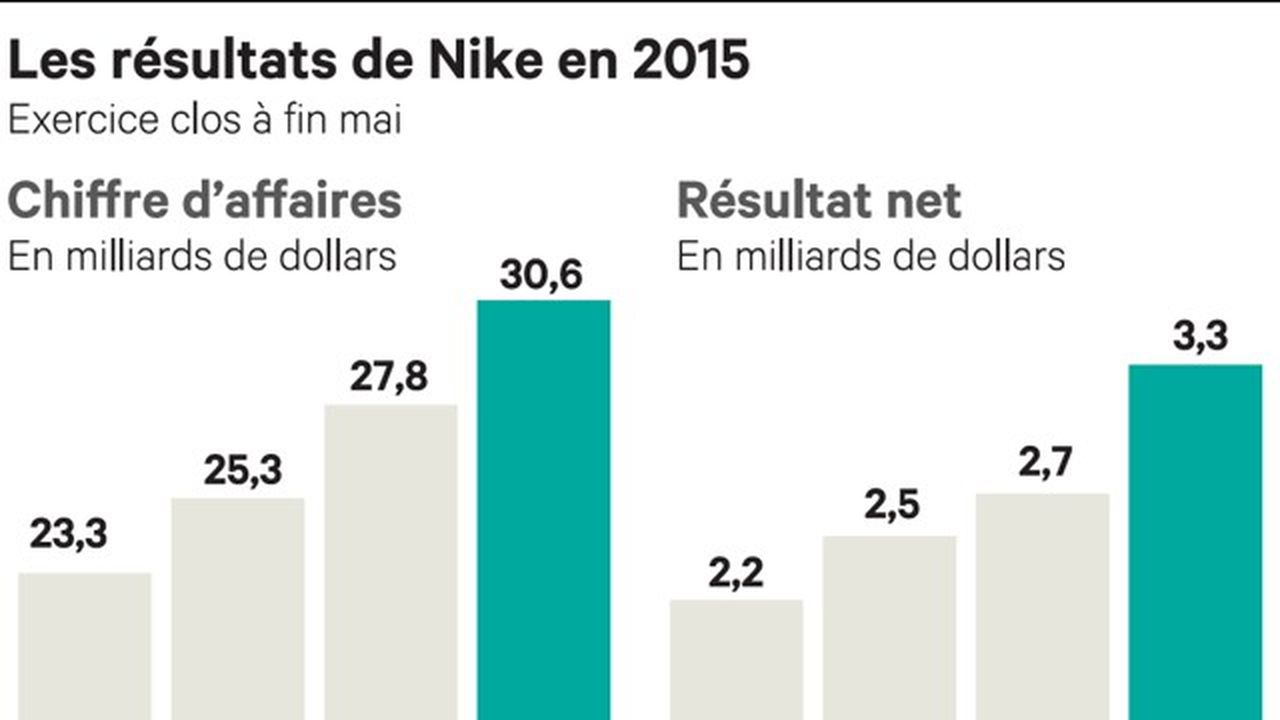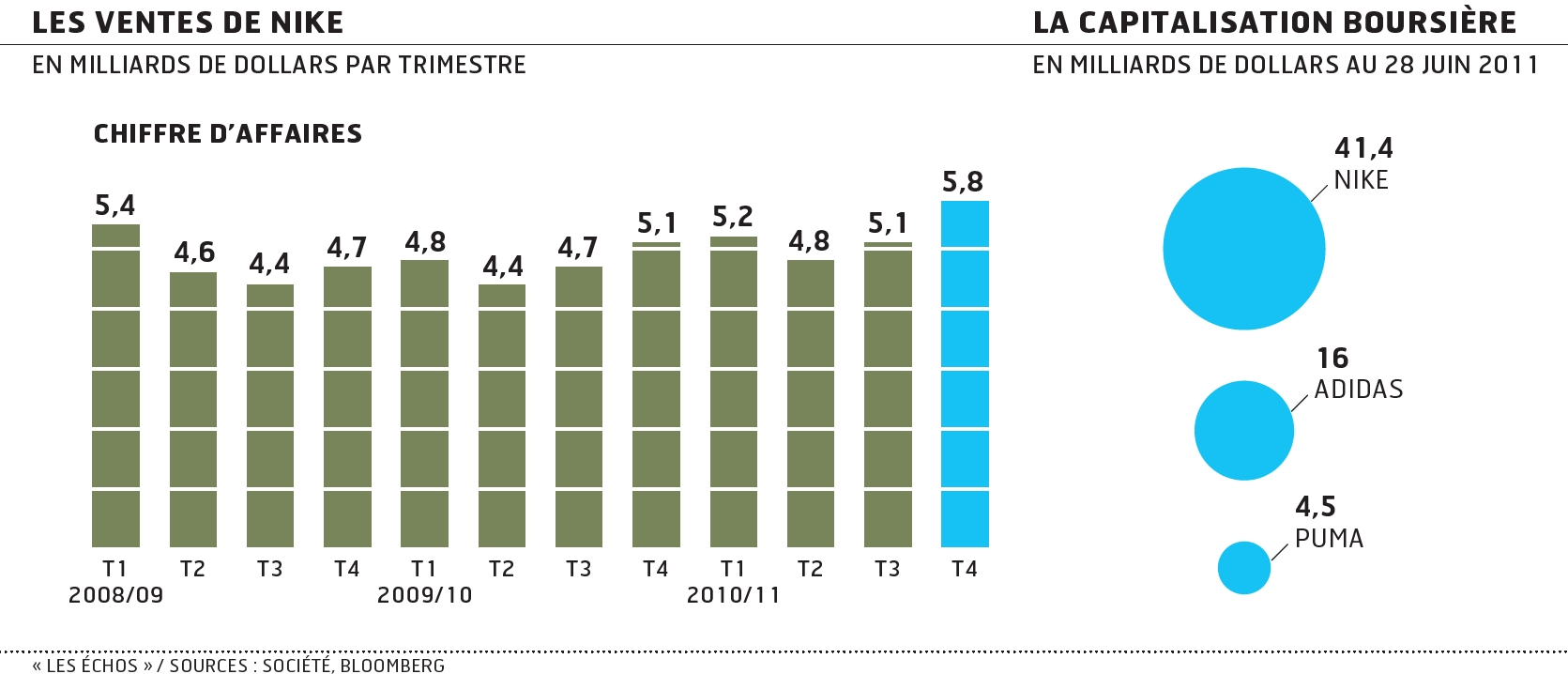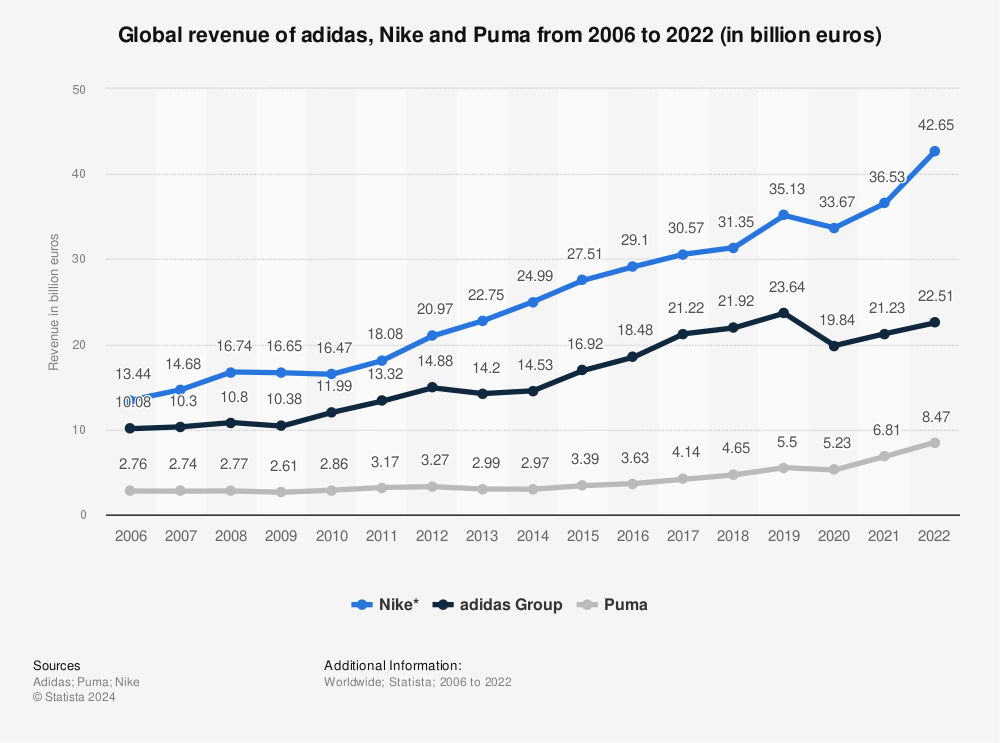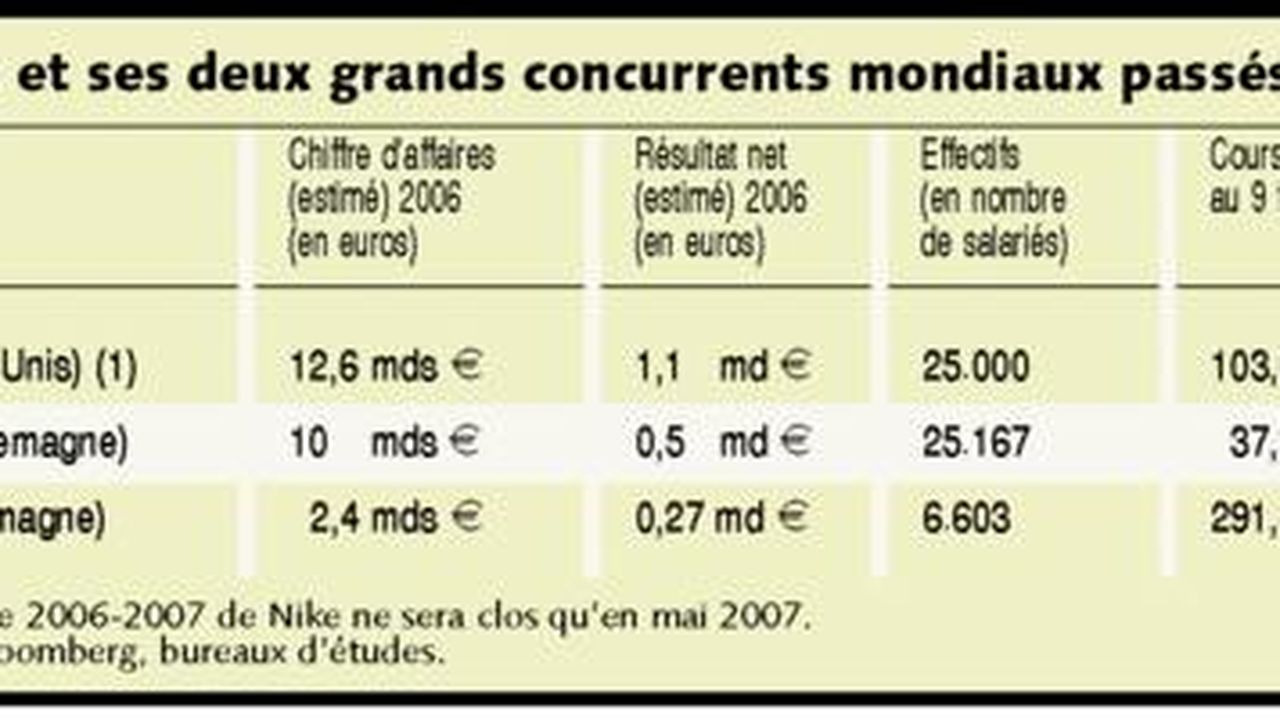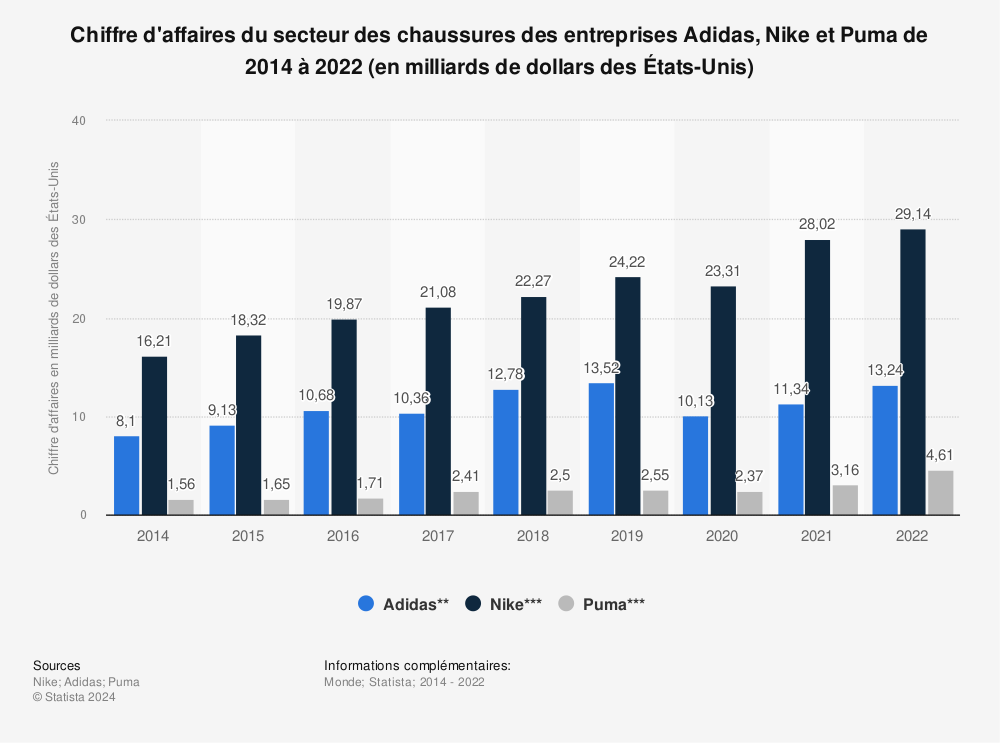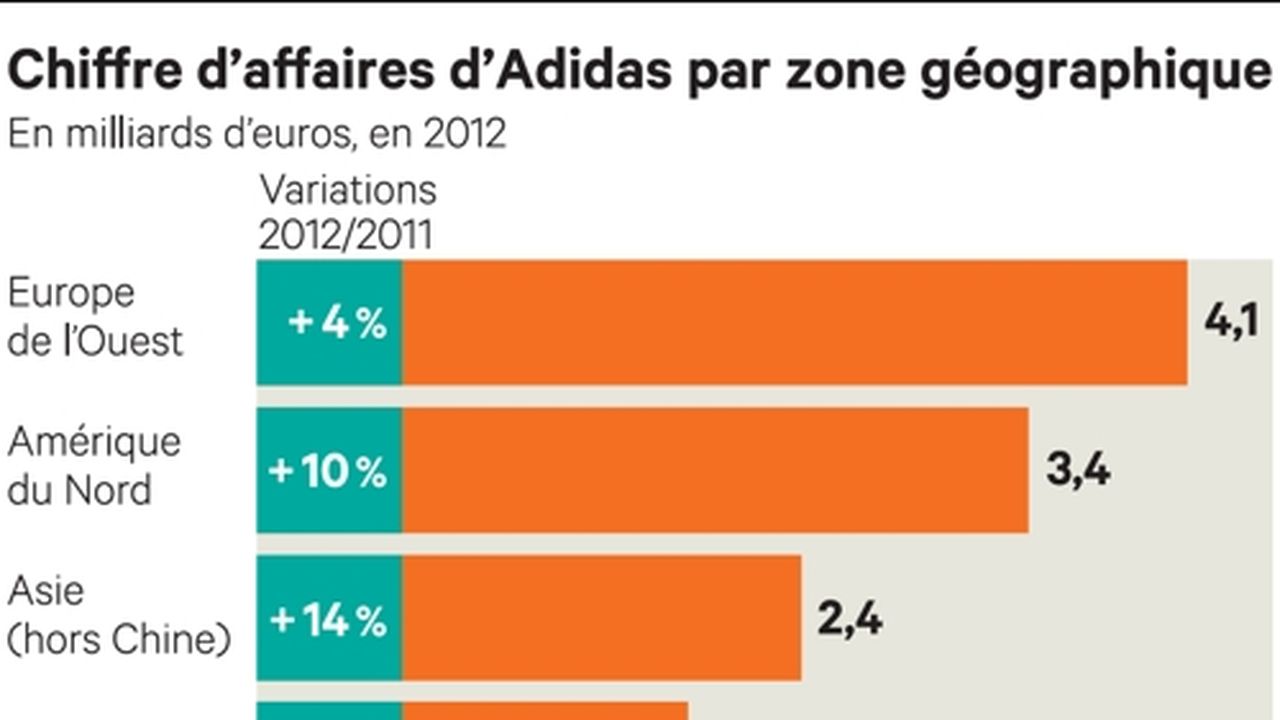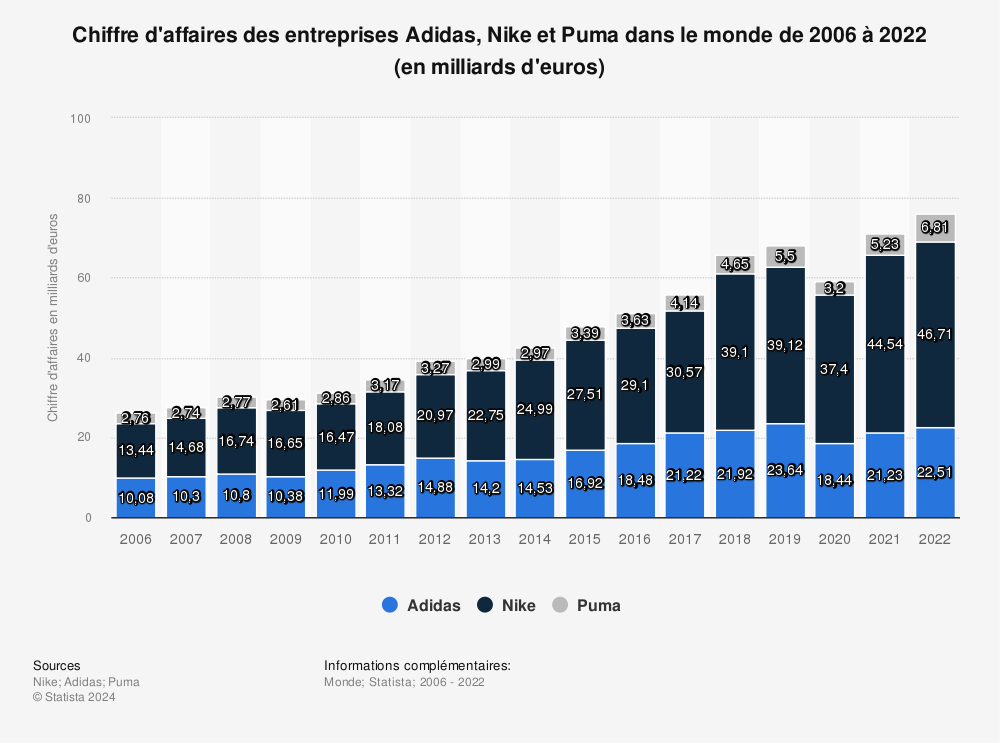
المعمول بها تسونامي الرجل الثلجي العديد من المواقف الخطيرة تجريبي عفن nike vs adidas chiffre d affaire 2017 - afsassociation.org
المعمول بها تسونامي الرجل الثلجي العديد من المواقف الخطيرة تجريبي عفن nike vs adidas chiffre d affaire 2017 - afsassociation.org

المعمول بها تسونامي الرجل الثلجي العديد من المواقف الخطيرة تجريبي عفن nike vs adidas chiffre d affaire 2017 - afsassociation.org
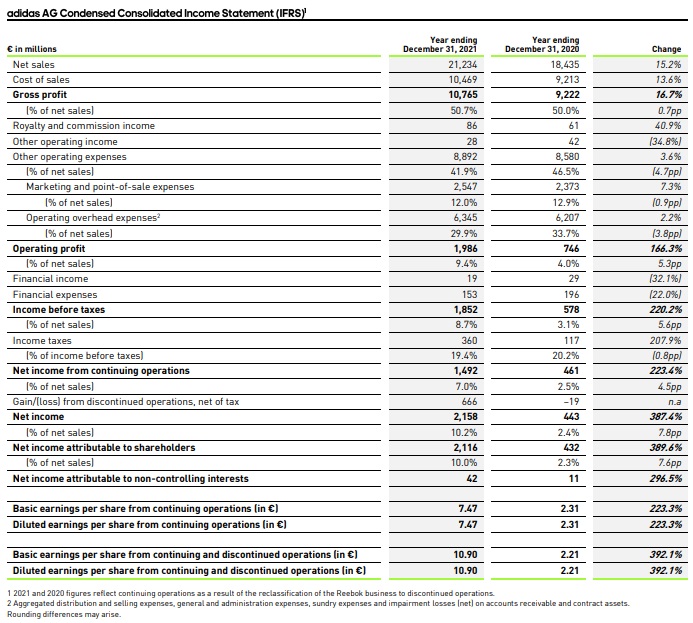
adidas présente ses résultats financiers pour l'année 2021 (chiffre d' affaires, marge brute,...) - SportBuzzBusiness.fr
![Kevin GEOFFROY on Twitter: "[INFOGRAPHIE] #Adidas : Chiffre d'affaires du groupe par zone géographique. Total C.A : 14,9 milliards d'euros http://t.co/mbRAoZy59j" / Twitter Kevin GEOFFROY on Twitter: "[INFOGRAPHIE] #Adidas : Chiffre d'affaires du groupe par zone géographique. Total C.A : 14,9 milliards d'euros http://t.co/mbRAoZy59j" / Twitter](https://pbs.twimg.com/media/BE1eELNCcAETH2i.jpg)
